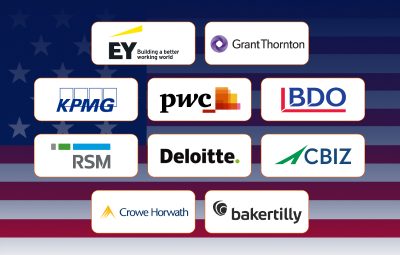One of the most looked through-relationship in a business is the one you have with your vendors. For a business to deliver highly satisfactory services, it is important to have a streamlined workflow starting exactly from the vendors. Delays, gaps and miscommunications can lead to a subsequent pause in deliveries, hampering your overall business rapport.
When working with potential home buyers, it can be challenging to monitor third-party relationships as closely as in-house processes. There are often unknown gaps and uncertainties that arise on a daily basis, which can pose obstacles to providing highly satisfactory services.
A business on average faces a regular delay of 48-72 hours while expecting shipments. But, the state of crisis occurs when the duration and frequency of delays increase.
The source of error resulting in conflicts could be anything. Understand and rectify the conflicts to their exact necessity to ensure smoother processes.
Here are the top 10 Challenges faced in any buyer-supplier relationship management and how they can be resolved:
1. Not Investigating Supplier’s Track Record
The first step to take before engaging with any supplier is to go through his past and current projects and to investigate his knowledge about tax and legal implications of exporting and importing. Knowing the supplier beforehand helps to create and build healthy relations.
————————————————————————————————————————————————————–
Also Read: Top 8 Ideas To Enhance Business Productivity without much effort
————————————————————————————————————————————————————–
2. Overlooking Their Industry’s Business Culture
Belonging to a different culture may give rise to different views and interpretations while having the same conversation.
3. Communication Gap
Communication is absolutely necessary for many aspects of the business. If a supplier doesn’t understand the company’s strategic goals that may fulfil the needs and requirements due to poor results. Maintaining good contact with the suppliers can benefit the organization in a big way.
4. Non-Transparency in Processes
Many times, the non-transparency of the supplier’s process creates gaps in the company-supplier relationship. Technology can play a crucial role to fill this gap. Analyze the whole process more efficient by using an online purchase order and invoice management tool like Invoicera.
5. Burdening the Already Over-Burdened Suppliers
Suppliers deal with many organizations at once. Often the order is delivered late by the supplier because of the unavailability of the product. These types of late deliveries can weaken the relationship. Forecasting the requirements of the company can help in running the SRM process smoothly.
—————————————————————————————————————————————————————
Related post: Buyer-Supplier Relationship Management Best Practices
—————————————————————————————————————————————————————
6. Forgetting Relationship at the Time of Damaged Delivery
At times, the delivered product turns out to be damaged or flawed. Aggressive steps at such times can ruin a relationship. One should notify the supplier respectfully and ask him to replace it. A healthy balance is maintained while taking steps against suppliers who are underperforming. A healthy balance manages underperforming suppliers.
7. Inefficient Supplier Training
If the supplier doesn’t understand, what the company wants its customers to experience through their products, he won’t be able to provide enough supplies. One should make sure that the supplier knows the company’s motto. They should be given appropriate training to ensure expectation levels.
Create a comprehensive knowledge base that can train your suppliers on each of your different processes. If you are a corporate with a huge network of suppliers, you may also consider setting up a website exclusively for suppliers to learn the processes and coordinate with your internal teams for supplies. It doesn’t cost a lot to set up such a platform with the help of website builder tools.
8. Avoiding The Need To Nurture
A healthy relation only nurtures when the two sides stay together for long.
Abandoning the suppliers at the time of success may create stress in a relationship. To avert this, one should include the supplier at every milestone and success celebration of a company.
9. Disharmony in Buyer-Supplier Chain
In a time without recognition and encouragement, the supplier becomes disloyal to an organization. Changing the supplier is not the solution here as it will consume more time and money. One can gain the loyalty of a supplier by encouraging him, or perhaps, offering incentives if possible.
10. Conflicts Over Contract
Signing a biased contract can be very unpleasant for the supplier. One should make sure that the contract has benefits for both the sides. A contract must be reviewed very carefully before it gets finalized, utilizing strong contract lifecycle management practices to ensure fairness and clarity throughout the process. This includes careful review during drafting, negotiation, and approval stages.
Many organizations are now realizing the importance of Buyer-Supplier Relationship Management. Efforts have to made on a continuous basis to build harmonious Buyer-supplier relationships. SRM is a long-term approach to sustained success.
Invoicera is an Online Invoicing Tool that Provides a Host of Features to Effectively Manage Buyer-Supplier Relationships:
Invoicera offers an array of features to ensure the convenience of management and precision with data. Now, no more hustling around and wasting your precious time with little executions that can be automated easily.
- Send and Schedule Invoices to the buyers on time.
- Buyers can send purchase orders in a timely manner.
- Suppliers can send in estimates for buyer approval.
- In the case of a price settlement, the buyer can send inappropriate credit not.
- The buyer can get a free log-in to access all invoices and account statements online.
Opt for Invoicera to manage your account payable and receivable effectively. Keep a record of all your finances and invoices together in cloud-based accounting software. FREE SIGN UP.
Find Answers to Your Most Asked Questions:
Q. What is the role of a supplier relationship manager?
A. A supplier relationship manager ensures that purchase orders are sent in time, payments are released as per dates, and all the grievances of the suppliers are addressed and resolved in time. In a nutshell, he ensures a smooth incoming of raw material and functioning.
Q. How do suppliers deal with poor performance?
A. Communication is the key to resolve any problem. If you’re facing an issue with your suppliers, communicate the matter to them, hold meetings, or ultimately for unresolvable issues take desired actions as per your policies.
Q. How do you challenge your partner in a good way?
A. In order to challenge your partner in a good way push them to their caliber limits. Don’t abandon them without work. Constantly keep working to attain goals that you’ve planned for your business and make them a part of it.
Q. What are the most common problems in relationships?
A. Some of the common buyer-supplier relationship challenges are:
- Not Investigating Supplier’s Track Record
- Overlooking Their Industry’s Business Culture
- Communication Gap
- Non-Transparency in Processes
- Burdening the Already Over-Burdened Suppliers
- Forgetting Relationship at the Time of Damaged Delivery
- Inefficient Supplier Training
- Avoiding The Need To Nurture
- Disharmony in Buyer-Supplier Chain
- Conflicts Over Contract
Q. What are the four 4 sources of risk in procurement?
A. Common type of procurement risk are
- Inadequate Needs Analysis.
- Poor Supply Chain Management.
- Inefficient Contract Management.
- Fraud and Corruption












